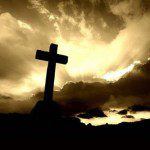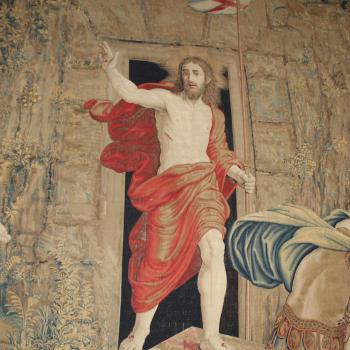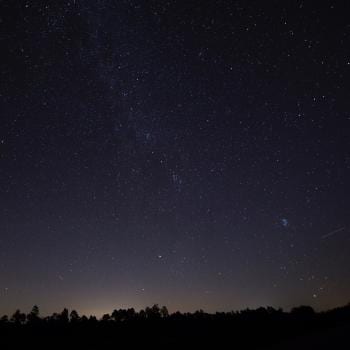During Holy Week, most of us focus on the palms, the passion, and the resurrection. The movement from celebrate to desolation and surprising celebration again characterizes not only Holy Week but the realities of a meaningful life. We can’t escape suffering but our suffering is often transformed into joy by surprising events or unexpected insights and experiences. In the shadow of loss, the light of new birth often emerges.
For many Protestants – but also for Roman Catholic and Orthodox Christians – Holy Saturday is a forgotten day. We experience the juxtaposition of the Passover, Eucharist, and betrayal of Maundy Thursday, and the darkness of Good Friday, but usually devote Saturday to preparing for our Easter feasts and egg hunts. Still, I believe there is good reason to see Holy Saturday as a key movement in Holy Week and a window into the realities of life.
Holy Saturday is the day of suspense and uncertainty, clouded over by tragedy and suffering. The future is in doubt and Jesus’ followers wonder if they will ever be able to hope again. That Saturday must have gone on forever as grief, fatigue, fear, hopelessness, and shame filled their spirits. Is Jesus really dead? Has God’s vision of Shalom been defeated? Was his message true or just another pipe dream? And when they looked at their own lives, Jesus’ followers struggled with personal uncertainty. Would they ever celebrate again? Could they ever live with themselves after abandoning the One who loved them? Was their faith misplaced and misguided?
Holy Saturday’s suspense reminds us of many of our own lives. Many of us deal with broken hearts, lost loves, chronic illnesses, failure and joblessness, hopelessness, alienation, and life-threatening illnesses. We remember good days in the past, but experience the disorientation of the present and wonder if the darkness and depression will ever lift.
Holy Saturday reminds us that we can’t skip over the rough spots in Holy Week and in our own lives to get to the happy ending – the resurrection of Jesus and God’s triumph over death in all its forms. We need to remember that Jesus’ first followers were caught up in a Sabbath interlude and had no expectation of resurrection.
While we live – those of us who grew up in the church or have heard the Easter message – in a world of familiar stories of triumph and new life, I suggest that we take a few minutes on Holy Saturday to contemplate Holy Week as if there were no Easter. What would it be like to live through Holy Week if there were no guarantee of an empty tomb and open future? Although we can’t obliterate our Easter memories, we can bracket them for a few hours of meditation, imaginative prayer, or a long walk with no particular destination. We can reflect on the uncertainties and suspense-filled situations in our own lives. We can ponder possible futures in which there may not be a happy ending.
Such reflection is not sentimental melancholia but an invitation to see the whole picture of life – the realism of loss and uncertainty and the deeper realism of new life emerging out of the darkness of the earth and the hopelessness of the grave. Easter will burst forth in ways that surprise and change us if we take pause to experience the Holy Saturdays of our lives.













